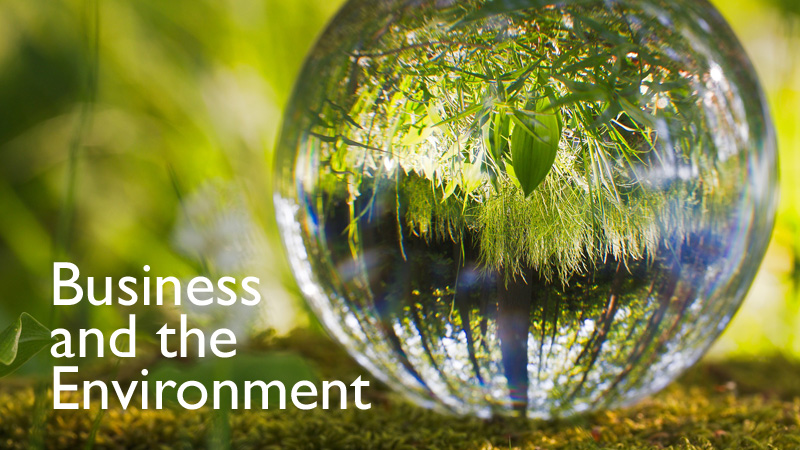
Someone cynically once said to me that people can only be environmentally conscious when they can afford to be financially. It sounded like a reasonable argument at the time, although these days I’m less sure. That’s because there now appears to be real momentum for environmental change, despite that fact that we are not currently experiencing a boom in the economy.
Britain recently successfully implemented the 5p plastic bag levy, which has contributed to a 90% reduction in their use. We’ve literally slashed consumption of single use plastic shopping bags by billions and there’s even talk of introducing the levy in retailers with fewer than 250 employees.
Single use plastic straws are now in the firing line with bars, restaurants and cafe’s around the world no longer offering them as standard in order to discourage unnecessary plastic waste. Single use plastic lined coffee cups may also soon be targeted with a latte levy. Waitrose are committed to removing all single use coffee cups from stores this year. Pret a Manger and Starbucks already offer discounts to customers using their own cups (more on cups later).
Changing Habits
What’s significant about these changes is that people are actively engaging with habit change. If you can carry reusable shopping bags in your car, rucksack or handbag then why not carry a spare reusable cup? Changing habits aren’t just limited to reducing plastic consumption they’re also affecting what we consume everything from goods to food to power.
This is exciting for the world as we move to embrace environmentally friendly renewable energy sources like wind and solar. There’s also been a rise in the number of vegans and vegetarians. Netflix hits like Cowspiracy and What the Health have emphasised the importance of eating less meat in order to save the planet’s resources and reduce CO2 emissions. Viral internet hits like the Story of Stuff are affecting the way consumers purchase, with a shift from goods to foods and experiences.
The most important thing to be aware of with these changes is that they are increasing as people get more comfortable with making these small adjustments in their lives.
Ideal World
I guess in an ideal world we’d completely reduce or offset our carbon footprints. Perhaps we’d stop consuming altogether and live more simple lives. We might reduce our number of fashion items like those taking part in Project 333 or we could even move into a tiny house or a van conversion to minimise our impact on the planet. We may even decide not to have kids (one fewer child per family is said to save 58 tonnes of CO2 equivalent emissions per year).
These extreme alternatives are also growing in popularity, especially amongst millennials. It’s important that we start to become aware of these shifts so that we can accommodate them in our business models and avoid losing valuable customers.
What can we do?
As someone who loves to buy and send cards, I personally don’t want to throw the baby out with the bath water. I don’t find Facebook messages and SMS’s nearly as intimate as sending a card (besides, even websites contribute to CO2 consumption). I find writing cards with my fountain pen a soulful and profound way of connecting with my fiends and loved ones.
I’m not just saying that because I publish cards. I genuinely love them and always have done. If you watch The Greeting Card Project videos I made on YouTube last year you can see the effect sending more cards has on us. For those that love to send and receive cards they have real meaning and importance.
Having said all of that, the environment is important to us too. How can we reconcile these two seemingly polarised values? How can we reduce the impact we have on the environment and still enjoy doing something we love?
Sources
The first thing to figure out is what we are buying and where does it come from? For example, are the boards and papers ethically sourced from responsibly managed sources? At Blue Eyed Sun we have been using FSC boards since we first started although we don’t actively promote this on the backs of our cards (partly because we are design snobs and find the logo unsightly on the card backs and partly because administratively burdensome chain of custody requirements). FSC stands for the Forest Stewardship Council and is one of several organisations that promote responsible management of the world’s forests. It verifies that cetified cards are not made from rainforests.
We are currently carrying out a company wide audit of all of our material components. Once this is completed we will be able to pinpoint areas for improvement. We’ll also be in a better position to communicate the environmental provenance of our cards to our fans and advise them on how best to recycle them when ready.
Communicating
It’s all very well doing the right thing, it’s also important to spread the word and let your customers know the facts about your products so that they can make informed decisions. This includes being transparent on your website about where your products are sourced and how best to recycle them.
Having environmental and social responsibility policies that you can share on your website helps with this sort of thing. Once we have all the facts about our sources this will be easier to communicate.
Integrity
Of course, being environmentally friendly doesn’t just stop with our products. How we run our businesses on a daily basis also affects our environmental impact on the world. Are your lightbulbs still tungsten based for example or have you switched to lower wattage alternatives? Our new production and distribution facility is fully equipped with LED lighting, which saves on electricity consumption.
We also recycle the majority of our waste at Blue Eyed Sun, which I thought was pretty good until I met Bruce Podmore from Windles at a recent GCA National Council meeting. His factory recycles over three tonnes of nails from his pallets each year and uses the wood from them to fuel his heating (reducing their bill by a phenomenal 85%).
Not only is Windles actively working to minimise their environmental footprint for the good of the planet, these actions are making good financial sense too. Their frequency controlled fluorescent lighting has reduced power consumption by 85% and saving money in the process. Their staff are more engaged with solutions and improvements. They’ve even won awards for their hard work in this area.
What inspired me most about Windles is how they’ve systematically identified areas for improvement throughout their business and are continually working towards reducing their environmental impact. This is the key I think. To start taking some steps. One at a time. Lots of small ones as many big ones as you can manage.
For us, solar panels is the next big investment goal we are working towards to reduce our consumption from the grid. It’ll take time, but long term we will feel proud of making a difference using it.
Working Together
At the GCA we are working hard to try and improve communication of factual information surrounding the use of foils, glitter, recycling and so forth. There’s still so much to be understood and it’s important to share resources, learning and best practice.
It’s tempting for any business in the industry to use such knowledge to gain competitive advantage over others. To do this is to miss the bigger picture. We all need to work and act together to show how we can minimise our environmental impact on the world. We only have one planet after all.
New Products
As we continue to work hard to improve the environmental credentials of our greeting cards and the way we work as a business at Blue Eyed Sun, I’m also very excited about a recent exclusive distribution deal we’ve signed for a range of Bamboo Products.
BambooCup is an environmentally friendly alternative to single use plastic lined coffee cups, 2.5 billion of which go into landfill in the UK each year. Reusable cups are a booming category in retail and we are thrilled to be involved in a fast growing niche that’s making a difference to our planet.
We still love publishing cards. Now we want to offer our customers even more.













